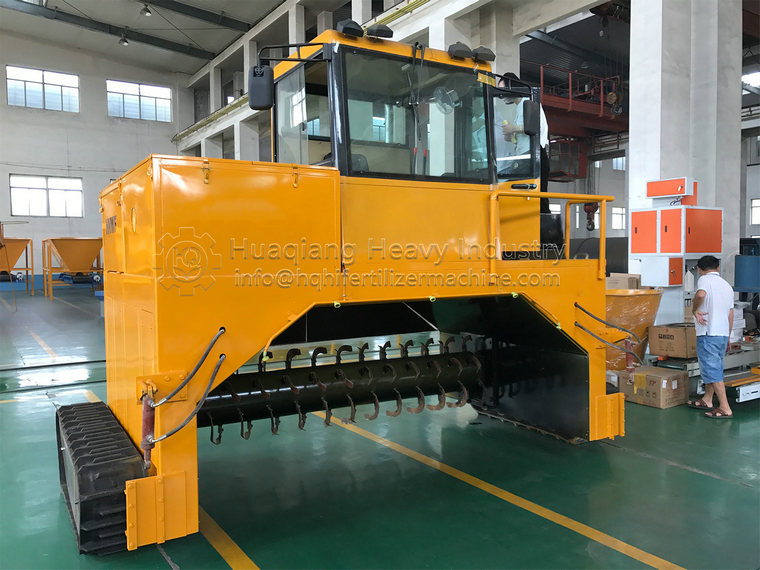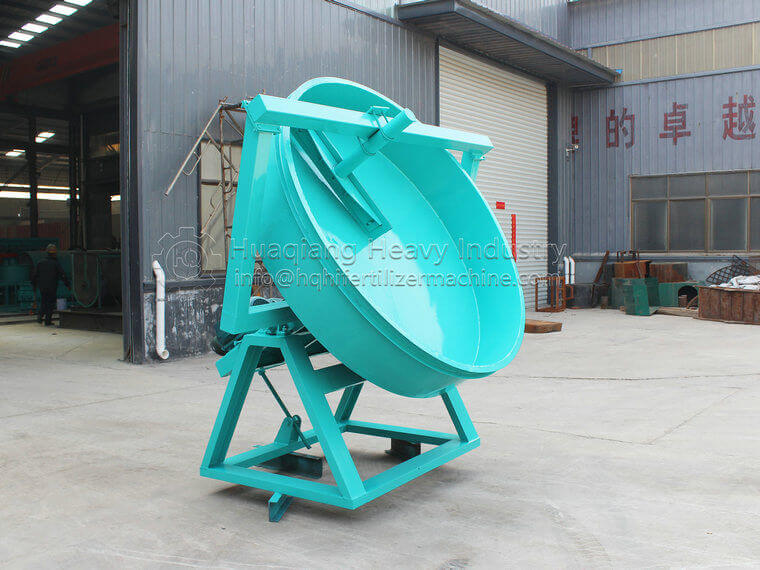Product characteristics of organic fertilizer self-propelled crawler type tipping machine
The organic fertilizer self-propelled track type tipping machine adopts a track walking design, which can move forward, reverse, and turn. It is controlled and driven by one person. During driving, the entire vehicle rides on a pre stacked long strip fertilizer base, and the fertilizer base raw materials are flipped, fluffy, and moved by a rotating knife shaft hanging under the frame. After passing by, new strip piles are left behind. This machine can be operated in an open outdoor field or in a workshop greenhouse.
The product characteristics of organic fertilizer self-propelled crawler type tipping machine:
1. The self-propelled tipping machine is more suitable for the mechanism and process requirements of microbial fermentation and storage of feces into fertilizer, and can effectively mix thick stored feces with microbial preparations and straw powder. Not only is the fermentation speed much faster than deep tank fermentation, but it also effectively prevents the generation of harmful and odorous gases such as hydrogen sulfide, ammonia, and indole during the fermentation process, which meets environmental requirements and can produce high-quality organic fertilizers.
2. The self-propelled tipping machine has a balanced and suitable overall power, low energy consumption, and high yield, reducing the production cost of bio organic fertilizers.
3. The overall structure of the self-propelled stacker machine is reasonable, with good rigidity, balanced force, simplicity, robustness, safe and reliable performance, easy operation, and strong usability in the storage yard. Except for the coarse frame, all components are standard parts, making it easy to use and maintain.
4. The self-propelled tipping machine does not need to build a slot, and can stack fertilizers into long strips on the ground. Ground stacked fermentation is currently a more advanced and cost-effective fertilizer production mode that utilizes a stacker to mix and crush materials at regular intervals, and decompose organic matter under aerobic conditions.

.jpg)


.jpg)

